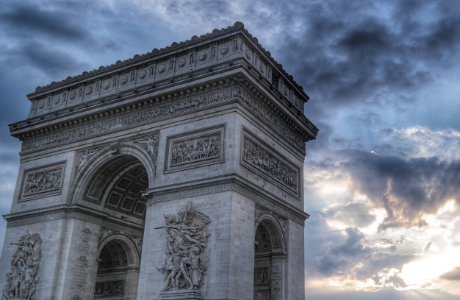That’s just one of the many questions Christie and I have been asked over the last few years since getting to know Andrew Chan and Myuran Sukumaran, two of the Bali Nine.
It’s been quite a journey – a very difficult one at times – made often harder because we’ve had to answer the same questions several times.
Now, don’t get me wrong, I don’t mind answering questions if it helps someone gain a better understanding. I’m not looking for everyone to agree with me, but I have been amazed at the amount of hatred poured out even from some quarters of the Christian church – you know, the people who are to “love their neighbour as themselves” – those people!
Firstly, let me make it clear that Christie and I were not looking for something else to do. We were actually taking a few days in Bali to rest after a particularly busy and stressful time. While we were there we met up with some old friends. During our time together they told us of the work they were doing inside Kerobokan Prison and would we like to join them for a morning. Little did we know that meeting Andrew Chan on that morning would lead to all that has taken place since.
So, here are some of the common questions and themes we have been asked along with what I hope will be helpful answers.
They’re just drug traffickers. Why bother with them?
It’s true. Andrew Chan and Myuran Sukumaran were part of the Bali Nine who attempted to bring over eight kilograms of heroin into Australia. We “bothered” with them because we got to know them and love them. We were amazed at their sorrow for what they’d done and for the way they were demonstrating that sorrow – not just by rehabilitating themselves, but also in working hard to help reform others. We “bothered” with them because Jesus “bothered” with us: “But God demonstrates his own love for us in this: While we were still sinners, Christ died for us” (Rom 5:8).
God actually did not wait for you and me to get our act together, He didn’t wait for us to reform or rehabilitate – He demonstrated the full extent of His love for us while we were still sinners.
It’s amazing how some having received God’s forgiveness can then be so unforgiving towards others. Jesus addressed this hypocrisy in the parable of the unmerciful servant (see Matthew 18:21-35). I’ve had people say to me, “Those guys don’t deserve mercy!” My response to them has been, “I couldn’t agree with you more!” No one deserves mercy. By its very definition it is something we DON’T deserve. Mercy is “compassionate kindness shown toward an offender or an enemy.”
Someone wrote this comment on Facebook, “What sort of a church are you that think these druggies are heroes. They knew what the law was and they broke it. Not the first time they did it but at least it was their last. Get on with life.”
The answer to that question is that Bayside Church is a church that is doing its best to show mercy, kindness, compassion and grace to all people – even people who make massive mistakes!
They knew the risks. They deserve what they got.
Yes, there are BIG signs at Bali airport warning travellers of the penalty for drug trafficking. The Bali Nine probably did know the risks but they were young. Did you make any mistakes when you were young? I know I did!
Recent research into the teenage brain shows some very interesting outcomes. Consider this quote from the online Health Encyclopedia, “It doesn’t matter how smart your teen is … good judgment isn’t something he or she can excel in, at least not yet. The rational part of a teen’s brain isn’t fully developed and won’t be until he or she is 25 years old or so. In fact, recent research has found that adult and teen brains work differently. Adults think with the prefrontal cortex, the brain’s rational part. This is the part of the brain that responds to situations with good judgment and an awareness of long-term consequences. Teens process information with the amygdale. This is the emotional part. In teen’s brains, the connections between the emotional part of the brain and the decision-making center are still developing. That’s why when teens are under overwhelming emotional input, they can’t explain later what they were thinking. They weren’t thinking as much as they were feeling.”
It’s fairly evident to me that Andrew, Myuran, Matthew Norman and the others weren’t thinking of the consequences.
What about the people who would have been hurt or killed by those drugs? Aren’t you being soft on justice?
No, we’re not being soft on justice. I’m glad every member of the Bali Nine were caught. I wish all drug traffickers are caught and brought to justice. I wish those who are behind the trafficking of drugs were caught and brought to justice too – not just the drug mules. I used to use drugs and I know all about their harmful effects. I lost some of my closest friends to drug overdoses. As a pastor I have seen the devastating effects of drugs, not just on the users but also on their families and friends.
In regards to Andrew and Myuran, the request was that their death sentences be commuted to life sentences so they could continue their work of rehabilitating other prisoners. Soft justice was never considered. A life sentence in Kerobokan Prison is not soft justice. If one thinks it is they should visit a prisoner there.
The eight kilograms of heroin didn’t make it into Australia, but many other drugs do. Those who use drugs need to take responsibility for their habit and seek help to become free of addiction. Blaming a drug supplier for your habit is like blaming a barman for your drinking problem.
You’re a hypocrite. Why are you just advocating for those two? What about everyone else on death row?
This has got to be my all-time favourite. Apparently we are hypocrites because we only spoke up for Andrew & Myuran and not ALL the people facing the death penalty around the world.
While I personally advocate against capital punishment in all circumstances (mainly though Amnesty International), Christie and I got to know Andrew and Myuran personally. It was because of our friendship with them that we advocated so strongly for them. Having said that, the two guys have asked that their deaths not be in vain and that we would all continue to advocate against the death penalty to eventually see it abolished in every nation.
What about helping…. (Insert other people in need here)?
Why are you helping drug traffickers? What about … the poor, the asylum seekers, the homeless, the drug addicted, the mentally ill, aborted babies you name it.
One person – who doesn’t know me very well – called me a “one-issue guy.” If they knew Christie, me and Bayside Church they would know that statement is completely untrue. As a church community we are very engaged in helping the poor, the marginalised, the disadvantaged, the asylum seekers, the homeless, the orphans and widows. We can’t solve all the world’s problems but we can make a difference. Have a read of this article for some very good comments on this question:
http://m.dailytelegraph.com.au/rendezview/the-emotion-police-ready-to-silence-anyone-with-the-wrong-feelings/story-fnpug1jf-1227334908980
How do you know they are really rehabilitated?
Some have suggested they were just pretending to be reformed so as to get a lesser sentence. Others have said, “They wouldn’t have changed if they weren’t caught.” Of course no one knows what would have happened if Andrew and Myuran weren’t caught. The fact is they were caught and during their 10 years in Kerobokan Prison they demonstrated by their words and actions that they were genuinely changed men. Christie and me and hundreds of other people have witnessed this rehabilitation firsthand over many years.
A great example is the author of the hymn Amazing Grace. John Newton was a slave trader – a trafficker of people. He later became a Christian and a pastor. There’s not a person on this planet that has met John Newton – he died in 1807. How do we know that this man who was an infidel and engaged in immorality and people trafficking was genuinely reformed? How do we know he wasn’t pretending?
Are you against the death penalty in all cases?
Yes I am. I believe I have to be consistent in my belief, which has changed over the years. I used to be very much for the death penalty but not any more. There are many reasons for this that I will save for another blog.
Let me give you two reasons here.
Firstly, when Andrew & Myuran and the other guys were executed, a Filipino lady named Mary Jane Veloso was also going to be shot. The Indonesian government was going to execute an innocent woman – if the guilty person had not come forward at the last minute Mary Jane would be dead now. The death penalty always risks killing the innocent.
Secondly, the death penalty punishes the innocent family and friends of those executed. Looking into the eyes of Andrew and Myuran’s families was heartbreaking. Seeing their grief and sadness over the loss of their loved ones was unbearable. As I said earlier, I am not into soft justice, but I don’t believe that killing a person for their crime is just.
Aren’t you just doing this to promote your own ministry?
I could think of much easier ways of promoting my ministry if I ever got an inclination to do that. One guy wrote this about us on Facebook, “The applause of man will be their only reward.” I can honestly say that neither Christie nor I am interested in people’s applause. This has actually been a very difficult and tiring journey with much opposition. I do, however, appreciate our church community at Bayside Church, many other Christians (as well as lots of people who don’t share our faith) and the media who have stood strong to help Andrew and Myuran and to advocate for their lives to be spared.
Isn’t it time to move on?
Look into the eyes of the family and say that!










